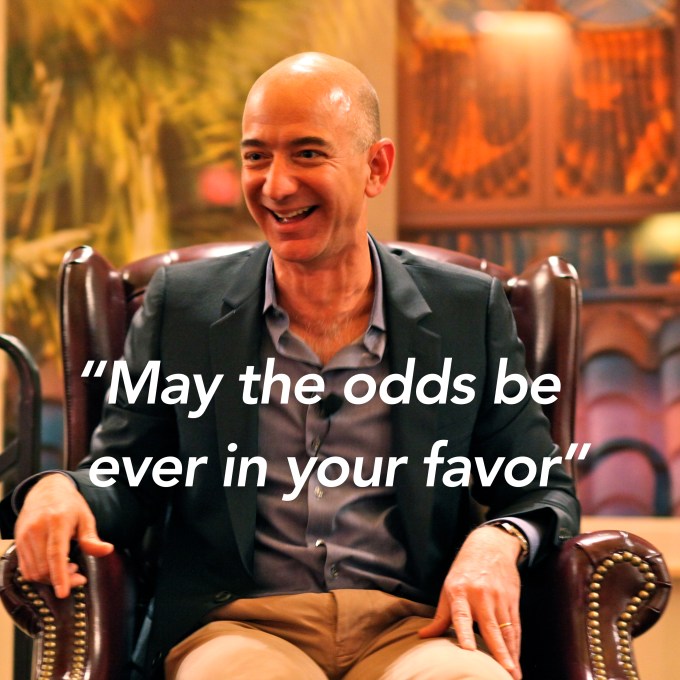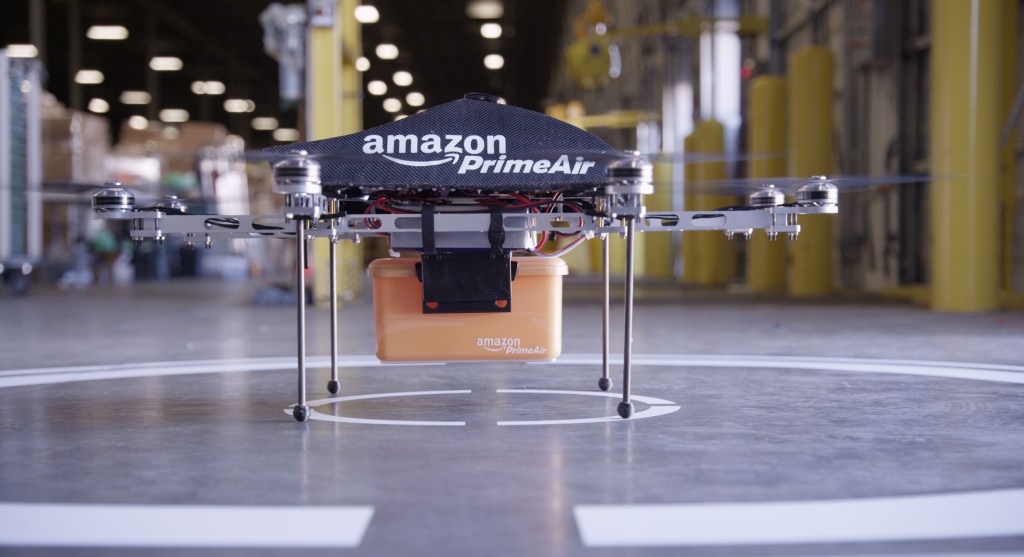I’ve seen a lot of people on social media talking about Saturday’s New York Times article by Jodi Kantor and David Streitfeld about Amazon’s toxic workplace culture. Lots of people saying they find the level of stress and pain workers were put through unconscionable–80-hour work weeks, midnight emails, people threatened with termination because they let health problems or childcare affect their productivity. People breaking down crying at their desks. “Purposeful Darwinism.”
I’ve seen people proclaim that this is the “last straw,” that they’re canceling their Prime membership, that they’re boycotting Amazon purchases, that they’re moved to speak up because Amazon has “gone too far.”
Really?
I honestly don’t see it. Yes, it sounds like a terrible place to work and I wouldn’t want to work there. But the stories are not that unusual for the tech world. Indeed, Nick Ciubotariu, the Amazon employee who took to LinkedIn Pulse to defend his employer, has posted a harrowing story of a coding “death march” at a different employer that indeed does make Amazon sound comparatively humane.
Again, don’t get me wrong, I think these practices are unconscionable and need to cease wherever they occur. I also think it’s obvious that these practices will lead to discrimination: Any set of standards that includes intangibles like “assertiveness” will harm women, who are treated far more negatively for assertive behavior than men. Any workplace culture that demands you sacrifice your life at home for your life at work will punish women, who are generally expected by their partners and by society to shoulder the burden of housework and childcare.
And I think it’s obvious that in any sufficiently large company there will be people like Ciubotariu who are generally happy with their lot and who will seek to use their anecdotal evidence to disprove everyone else’s experience–and that, for obvious reasons, they’re far more willing to put their names behind their stories than the complainers.
But these are still, as we say, “First World problems.” White-collar Amazon employees have choices about where to work. The Times article acknowledges that the initial welcome video straight-up says “You either fit here or you don’t,” and that in Seattle the company has a widespread reputation for its toughness.
For now, you have a choice whether to work for Amazon. For now, you have options. Amazon is the vanguard of a very scary movement in the tech sector but we’re not all there yet (though some techbros on Twitter seem happy at the thought of Amazon culture catching on).

It still does suck for people who get lured into a toxic environment thinking they can hack it, thinking they’ll be rewarded or even become better, stronger people for taking that kind of abuse, and finding out too late what kind of cost it extracts from them.
But what about everyone else?
Why do we care suddenly about working conditions when it turns out that white-collar employees are the ones getting shafted? The workers at Amazon fulfillment centers have much less choice and much less power than the marketers and engineers in the Times piece.
As spartan as Amazon’s offices might be–No in-office food service! No on-site masseuse!–I doubt any of them were ever in danger of dying from heatstroke because no one thought to provide them with air conditioning–with the added black-comedy detail of the company having an ambulance waiting outside for those workers who inevitably do collapse.
They may feel like they’re in an Orwellian panopticon with superiors and peers constantly passing around emails judging each other’s performance–but I don’t think they’re being tagged with GPS trackers like animals and having all of their movements constantly monitored for inefficiency. However grueling their workday is, they’re not getting blisters from walking 15 miles a day.
And however high the attrition rate for white-collar Amazon employees is, their experience can’t possibly be as sadistically Kafkaesque as hiring temps for six months of seasonal work, then slapping them with an eighteen-month nationwide non-compete.
We’re acting shocked and horrified that Amazon applies what it calls “purposeful Darwinism” to people with MBAs and PhDs, but the career of its warehouse employees has been less Darwinian than Hobbesian–nasty, brutish and short. Less “survival of the fittest” than “nobody survives, in with the next batch.”
And what about how Amazon’s “purposeful Darwinism” has affected the rest of the world with which it interacts? Amazon started as a place to buy books, not because CEO Jeff Bezos has any particular affection for books but because they were “easy to pack and hard to damage.” How has Amazon becoming the world’s bookstore affected authors, editors and publishers, the people who make these books we love?
More cutthroat competition. More hardball tactics. Margins squeezed as thin as they can possibly get, huge lists of books and authors vanishing from the Amazon catalog if publishers won’t get with the program. Using Wal-Mart-style price-dumping to ensure they end up the only game in town, openly attempting to put the publishing industry out of business and replace it with their cut-rate ebook version of it.
And what of Amazon’s expansion away from the book market? How has Amazon becoming the world’s “Everything Store” affected all the producers of things that aren’t books?
The same, basically. If you’ve ever wondered how the economy can be doing so well on paper and yet so many people are still struggling, it’s because all the retail jobs are going away thanks to “disintermediation,” i.e. “cutting out the middleman.”
The “middleman,” unfortunately, ends up being most of us. It starts with the independent bookshops and Mom ’n Pop corner stores, it goes on to hit Barnes and Noble and the local supermarket. Before long the only jobs left will be the jobs at Amazon itself, which will themselves soon be replaced by robots and delivery drones.
On top of that, the fact that Amazon got its market share initially by avoiding sales tax and taking money away from building and maintaining schools, hospitals and highways is just icing on the cake. That and the fact that Amazon charges such low prices by funneling our money toward surreal hellholes in other countries stuffed with children making less than a dollar an hour doing work that makes an Amazon fulfillment center seem like a vacation.
But let’s be fair to Jeff Bezos here. It’s not his fault. This is the world you and I voted for. Every time we clicked “Place your order,” we were casting our ballots for a world of “purposeful Darwinism,” for accelerating demands for greater and greater efficiency that weed out more and more of the world until only the most ruthless remain.
Jeff Bezos even told us this. He told us that he was doing it for us. All the paeans to Amazon’s efficiency talk about their “customer-obsessed” culture, how everything comes back to bowing and scraping to please the customer. Whenever they’ve done something egregious like pull down all of a publisher’s books from their catalog, they’ve sent out passive-aggressive emails assuring us they’re doing it for the sake of the customer.
Well, to quote the head of the National Recovery Administration, General Hugh “Iron Pants” Johnson, “Who is the consumer? Show me a consumer.” You’re only a consumer after you’ve made money working as a producer that you then spend on stuff. Making jobs increasingly scarce and increasingly horrible for those who can get them in the name of helping the “customer” just end up hurting the customer, because in the long run customers and workers are the same people.
(Not all customers, of course. In the end the only customers left standing will be the ones with enough money to start with that they can keep on making money to buy stuff without having to work–say, by owning Amazon stock. Capitalism regresses toward feudalism. To learn more, go actually read that Piketty book everyone bought and pretended to read a year ago.)
That’s in the long run, of course. In the short run it’s only the people in China who are getting screwed, or the people in America who lack college degrees and have to take hourly blue-collar work and therefore don’t count as much as you or me. Maybe it’s people who work retail who get screwed, or those weirdoes who own little corner stores, or, of course, those spoiled and entitled writers whose work doesn’t really count as work and who therefore shouldn’t complain.
But the march of capitalism is inexorable. “Purposeful Darwinism” spreads its way upward. Sooner or later it was going to be the software engineers, the marketing gurus, the supply chain analysts getting screwed. The finely-tuned machine of progress needs fewer and fewer of us to do its work every day, and it can therefore work us harder and harder, with increasingly relentless brutality.
Purposeful Darwinism gets us all in the end. And we were welcoming it with open arms because of how addictive it was to be able to buy more and more stuff at lower and lower prices–until the beast came to our own doorstep, until it was too late.































Comment